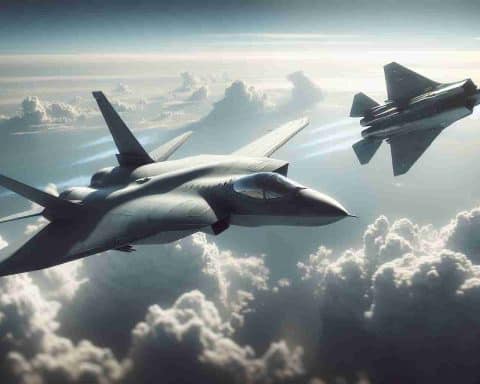Romania is stepping up its military capabilities with a major new acquisition. The Romanian government, under President Klaus Iohannis, has approved the purchase of 32 state-of-the-art F-35 fighter jets from the United States, a significant step in bolstering national defense.
The contract, valued at over $6 billion, marks a robust investment in Romania’s military future. Funding for this substantial purchase will come from the Romanian Ministry of Defense’s budget, with additional financial support potentially provided through loans or guarantees from the U.S. government.
This comprehensive deal covers not just the aircraft, but also includes engines, necessary munitions, and initial logistic support. Additionally, it provides for the training of pilots and support staff, acquisition of cryptographic equipment, and the launch of projects for industrial cooperation between the two countries.
The plan to integrate F-35 fighters into the Romanian Armed Forces is structured in two phases. Initially, two squadrons, totaling 32 jets, will be acquired. Following this, a third squadron, adding another 16 aircraft, is set to be purchased in the subsequent phase.
With this significant investment, Romania aims to enhance its defense capabilities and strengthen its strategic partnership with the United States. This move highlights Romania’s commitment to modernizing its military forces and ensuring advanced protection for its national security.
How Romania’s Acquisition of F-35 Jets Could Propel Technological Advancements
Romania’s recent decision to acquire 32 F-35 fighter jets from the United States not only marks a pivotal moment in its national defense strategy but also opens up new avenues for technological growth and innovation. The implications of this acquisition extend beyond military might, potentially influencing various sectors and sparking discussions about military expenditures and national priorities.
Technological Ripple Effect
The introduction of these advanced jets could stimulate technological growth in Romania. The F-35 program is known for its cutting-edge technology, which includes advanced stealth capabilities, sensor systems, and avionics. By incorporating such technology, Romania might witness a trickle-down effect, leading to advancements in local tech industries and possibly spurring innovation in areas such as aerospace, cybersecurity, and telecommunications.
Controversies in Defense Spending
However, the decision is not without controversy. Investing over $6 billion in military assets raises questions about national priorities, particularly in a world increasingly focused on cyber threats and digital warfare. Critics argue that such a hefty sum might be better spent on infrastructure, healthcare, or education, potentially yielding more direct benefits for the Romanian population.
Advantages and Disadvantages
The advantages of acquiring these state-of-the-art fighters are evident. They provide Romania with enhanced defense capabilities, improve its NATO interoperability, and strengthen geopolitical ties with the United States. Moreover, the deal includes comprehensive training for pilots and support staff, fostering skill development within the country.
On the downside, the high cost of maintaining such advanced aircraft could strain future budgets. Additionally, reliance on foreign military hardware may slow down the development of local defense industries, inhibiting Romania’s potential to become a significant player in the global arms market.
Will the Investment Pay Off?
One might ask whether this investment will indeed bolster Romanian security to the extent anticipated. The F-35s are certainly powerful assets, but their success lies in how effectively they are integrated into existing military frameworks. Moreover, the geopolitical environment will ultimately determine their role and utility.
For further context on global military advancements and technologies, readers can explore more on Lockheed Martin, NATO, and The U.S. Department of Defense.
Ultimately, Romania’s F-35 acquisition presents a fascinating case study in balancing defense strategies with economic realities, technological potential, and international relations. How this decision pans out will be closely watched by analysts and policymakers worldwide.






















